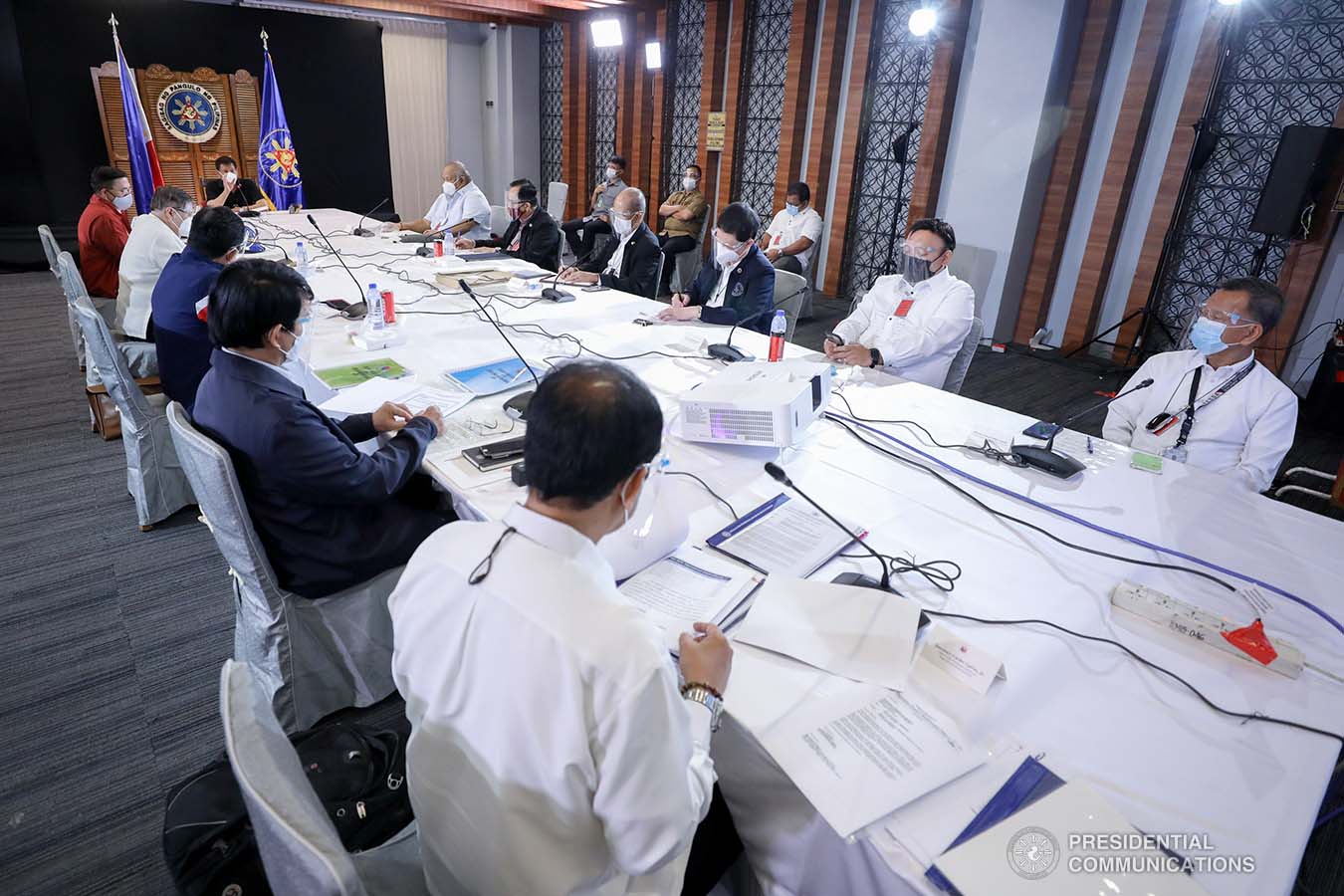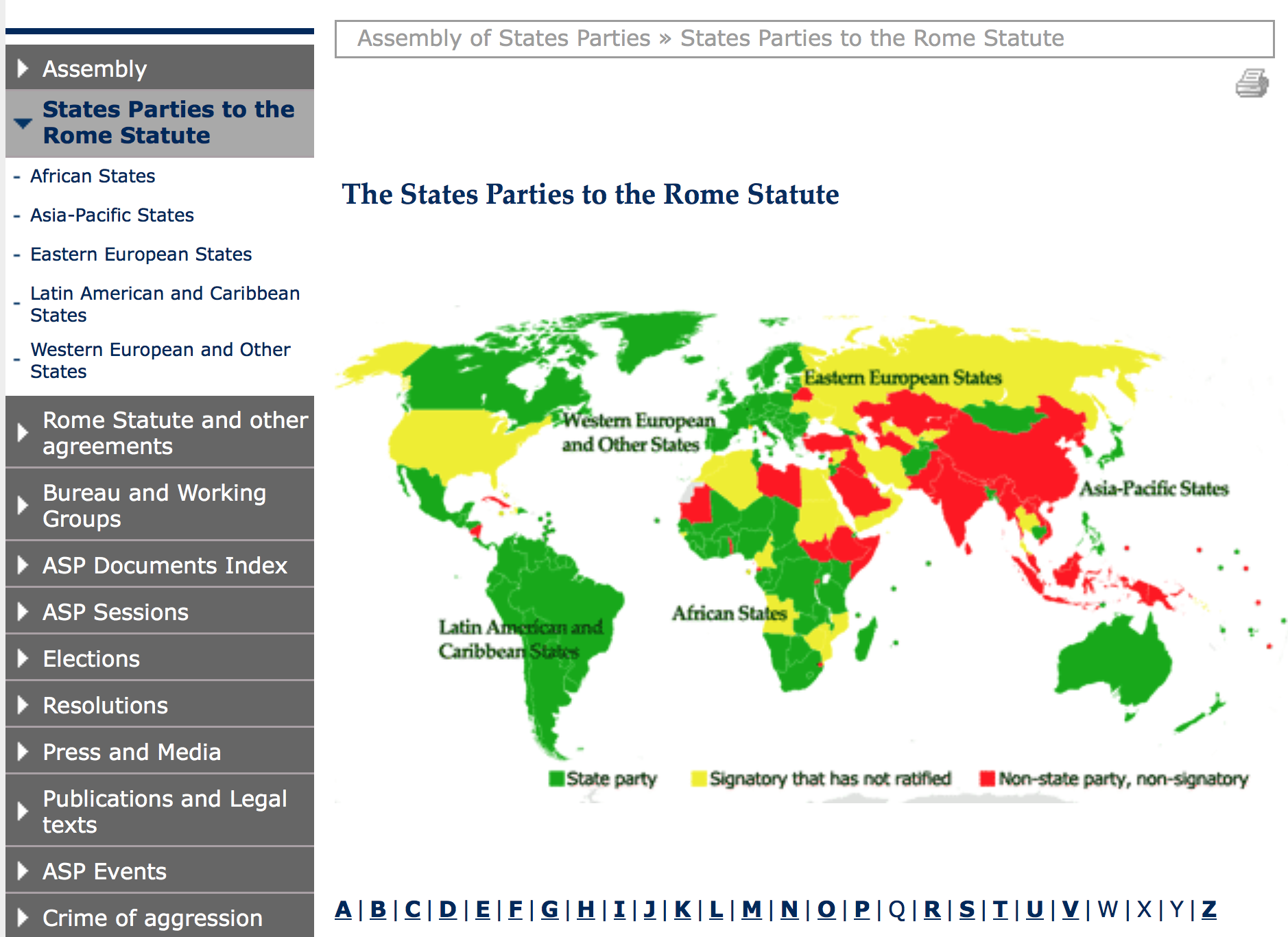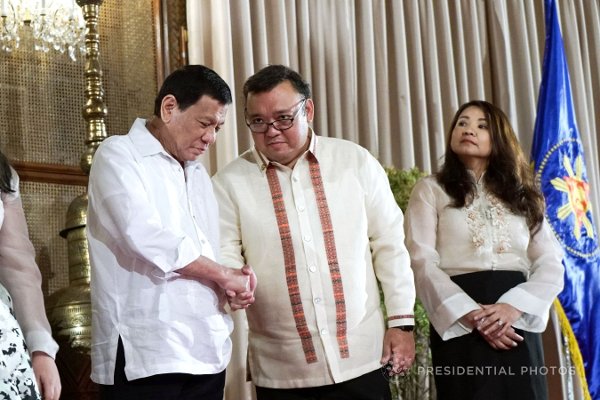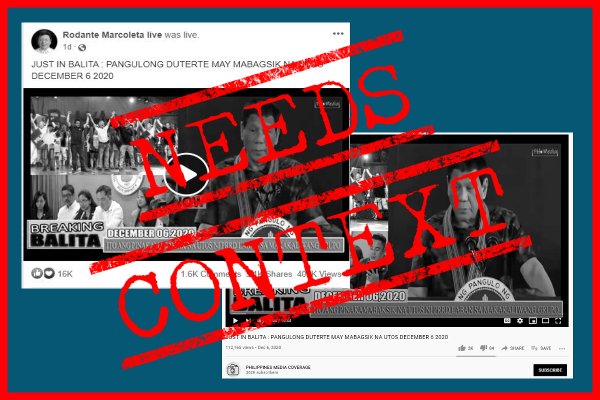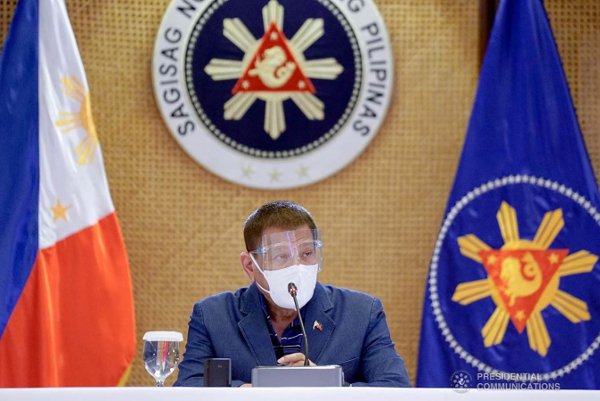President Rodrigo Duterte inaccurately claimed that he doesn’t know the people behind the group pushing for a “revolutionary government” with him at the helm in transitioning to a federal system by 2022.
STATEMENT
In a recorded “Talk to the People” public address aired on Aug. 25, Duterte said:
“[A]lam mo, marami ngayon may naglalabasan — revolutionary government. Tapos ako ang sinasabi na… Wala akong pakialam niyan. Wala akong kilala na mga tao na ‘yan at hindi ko ‘yan trabaho. (You know, many have been coming out — revolutionary government. They say I am…I have nothing to do with that. I don’t know anybody among those people and it’s not my job.)”
Source: RTVMalacanang, WATCH: President Rodrigo Roa #Duterte Public Address, Aug. 25, 2020, watch from 12:06 to 12:32
FACT
Duterte knows the leaders and has, in fact, attended a number of public gatherings of the Mayor Rodrigo Roa Duterte-National Executive Coordinating Committee (MRRD-NECC), a national volunteer group named after him that organized the Aug. 22 assembly of the People’s National Coalition for Revolutionary Government and Charter Change at Clark Freeport in Pampanga.
Duterte had also appointed to government positions some of them, including the personalities who attended the coalition’s launching on July 25 in front of the historical Barasoain Church in Malolos, Bulacan.
The leaders of MRRD-NECC are the same prime movers behind the revolutionary government advocacy.
In 2018 alone, Duterte met the group on at least three occasions that were well documented by the Presidential Communications Operations Office (PCOO).
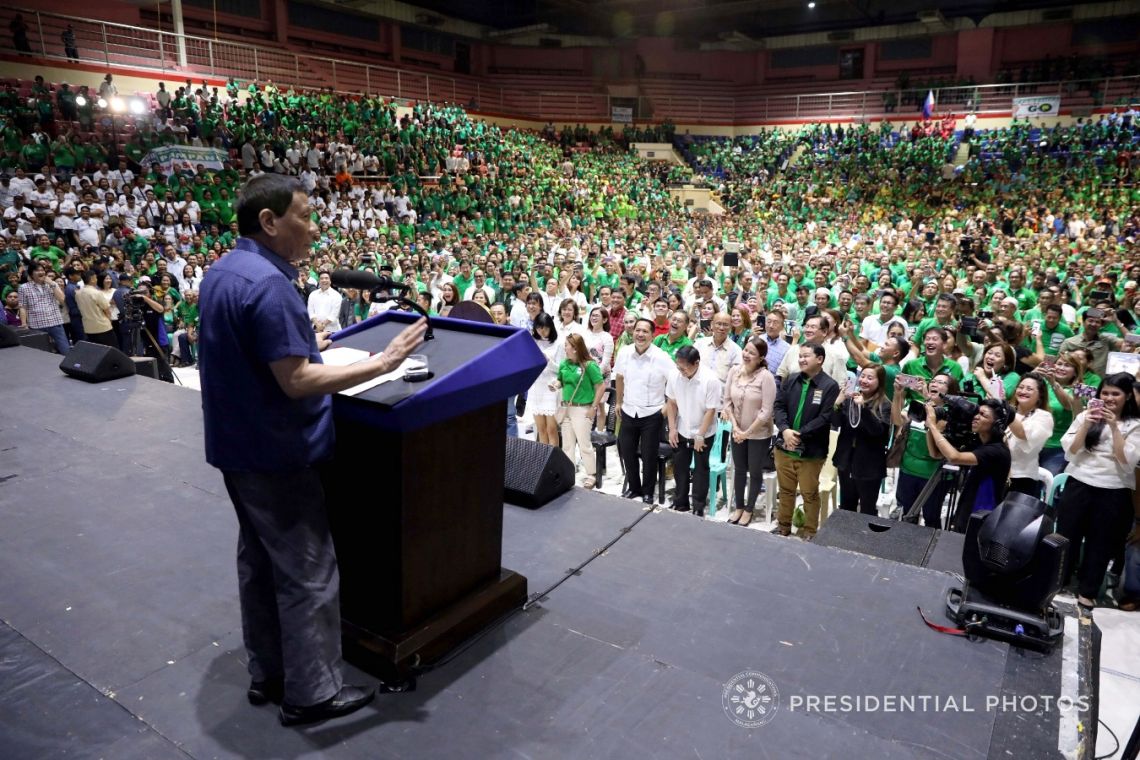
Duterte attended MRRD-NECC’s national convention in 2018, where he thanked the group in a speech for helping in his presidential bid in 2016. Photo from Presidential Communications Operations Office
The PCOO website has story, video, and photo releases showing that on March 21, 2018, Duterte spoke at the national convention of MRRD-NECC at the Cuneta Astrodome in Pasay City. During the event, the president recognized the group’s big help in getting him elected in the 2016 elections. He then met with provincial chapter leaders of the group in Aurora on May 15, 2018 and received its national leaders in Malacanang with officials of the Department of Interior and Local Government (DILG) on Sept. 25 of the same year.
During the campaign for the 2016 elections, several photos and videos were posted on social media showing Duterte attending various events organized by MRRD-NECC. One photo showed him “endorsing” MRRD-NECC’s official membership card in December 2015, while a video dated Feb. 4, 2016 featured him meeting with his campaign managers from various support organizations at the group’s national headquarters in San Juan City.
Some of the ranking members of the MRRD-NECC that Duterte had appointed to government positions have already resigned, were reappointed, or removed by the president himself due to allegations of corruption.
MRRD-NECC member Ismael Sueno was Duterte’s first Interior secretary, but he was fired nine months later over allegations that he facilitated the procurement of overpriced fire trucks from an Austrian company.
Martin Diño, a former barangay chairman and the group’s secretary general is serving his second government position as DILG undersecretary. He was first appointed as chairperson and concurrent administrator of the Subic Bay Management Authority (SBMA) but was fired following a power struggle with other board members.
Diño stood as a proxy to Duterte in filing a certificate of candidacy within the deadline because the then mayor of Davao City was still insisting that he was not interested in seeking the presidency.
MRRD-NECC’s incumbent president John Castriciones, first designated by Duterte as DILG undersecretary, is now secretary of the Department of Agrarian Reform (DAR). Castriciones is joined by his two fellow MRRD-NECC members, Emily Padilla and Virginia Orogo, who were appointed as undersecretaries of DAR after their stint in DILG and the Department of Social Welfare and Development, respectively. Padilla was the leader of DILG’s core group on federalism.
MRRD-NECC officially launched on July 25 the campaign for a revolutionary government, seeking to write a new constitution and change the unitary system of government into federalism, with Diño, other politicians and high-ranking members, in attendance.
The group, which convened the People’s National Coalition for Revolutionary Government and Charter Change, wants Duterte to lead a revolutionary government that would serve as a transition to a federal form of government until December 2021, according to its national deputy spokesperson Bobby Brillante.
However, Duterte and some government officials, including the police and military, dismissed MRRD-NECC’s call for a revolutionary government. Justice Secretary Menardo Guevarra, who disapproved of the call, assured that his department will investigate any complaints that may be filed against individuals behind the call for a revolutionary government.
In an interview on Aug. 26, Presidential Spokesperson Harry Roque said that Duterte knows the MRRD-NECC, but clarified that Duterte is against the group’s call for a revolutionary government.
Roque also claimed “a different organization is spearheading” MRRD-NECC. Diño and MRRD-NECC’s chairperson Guiling Mamondiong, however, are among the top officials of both the MRRD-NECC and the coalition pushing for the revolutionary government.
Duterte had been flip-flopping in the past about establishing a revolutionary government. In April 2019, he warned of declaring a revolutionary government as he voiced his displeasure over criticisms on his plan to review government contracts on top of other problems, such as criminality, drugs and rebellion, the country is facing. This was contradictory to his statement in November 2017 when he said that the country wouldn’t benefit from it.
He promised in August 2017 that he would never consider declaring a revolutionary government during his term, but two months later, he said he would impose it to arrest all communist rebels. (See VERA FILES FACT CHECK: Duterte flip-flops on declaring ‘revolutionary government’)
